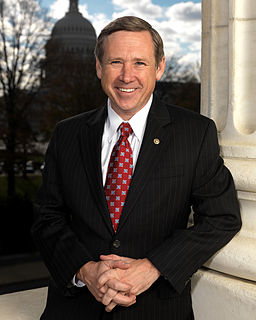Top 166 Gdp Quotes & Sayings - Page 2
Explore popular Gdp quotes.
Last updated on December 22, 2024.
What's really clear to all of us in the business community is that GDP is slowing everywhere. And the reason is productivity has been declining now for 15 or 20 years all over the world. So we've got very high unemployment, and it's structural. And it's compounded by real-time climate change - that's really a game changer.
Influence is best measured not only by military hardware and GDP, but also by other people's perceptions that we, the United States, are using our power legitimately. That belief - that we are acting in the interests of the global commons and in accordance with the rule of law - is what the military would call a 'force multiplier.'
I have made revenue collection a frontline institution because it is the one which can emancipate us from begging. If we can get about 22% of GDP we should not need to disturb anybody asking for aid; instead of coming here to bother you, give me this, give me this, I shall come here to greet you, to trade with you.
The Canadian debt-to-GDP ratio will continue to decrease every year, including the first three years under the Liberal government. That is what we're focused on. We know we need to invest in the kind of long-term growth and short-term job creation that Canadians expect, and Liberals the only party offering to do that.
GDP has been a con perpetrated upon the poor of the world: a measure of economic activity and not of actual wealth. What it masks is the way in which we transform their natural capital into our consumption through international rules that regard the ecosystem services upon which they rely as mere externalities.
From the recycling miracles in the soil; an army of predators ridding us of unwanted pests; an abundance of life creating a genetic codebook that underpins our food, pharmaceutical industries and much more, it has been estimated that these and other services are each year worth about double global GDP
The concept of productivity in America is income divided by labor. So if you're Goldman Sachs and you pay yourself $20 million a year in salary and bonuses, you're considered to have added $20 million to GDP, and that's enormously productive. So we're talking in a tautology. We're talking with circular reasoning here.
Women are a dynamic economic force. We represent the largest consumer market in the world and are drivers of GDP. More and more companies recognize that when they support women as customers, employees, leaders, future investors and partners, they are adopting sound business strategies and advancing social progress.
If you have a private firm and you spend a ton of money to pay employees, but what you produce is a flop, there will be no value to GDP. But government spending all gets counted as contributing to economic growth. That's why in the early days of creating these measurements, some people didn't want to count government spending.



















































